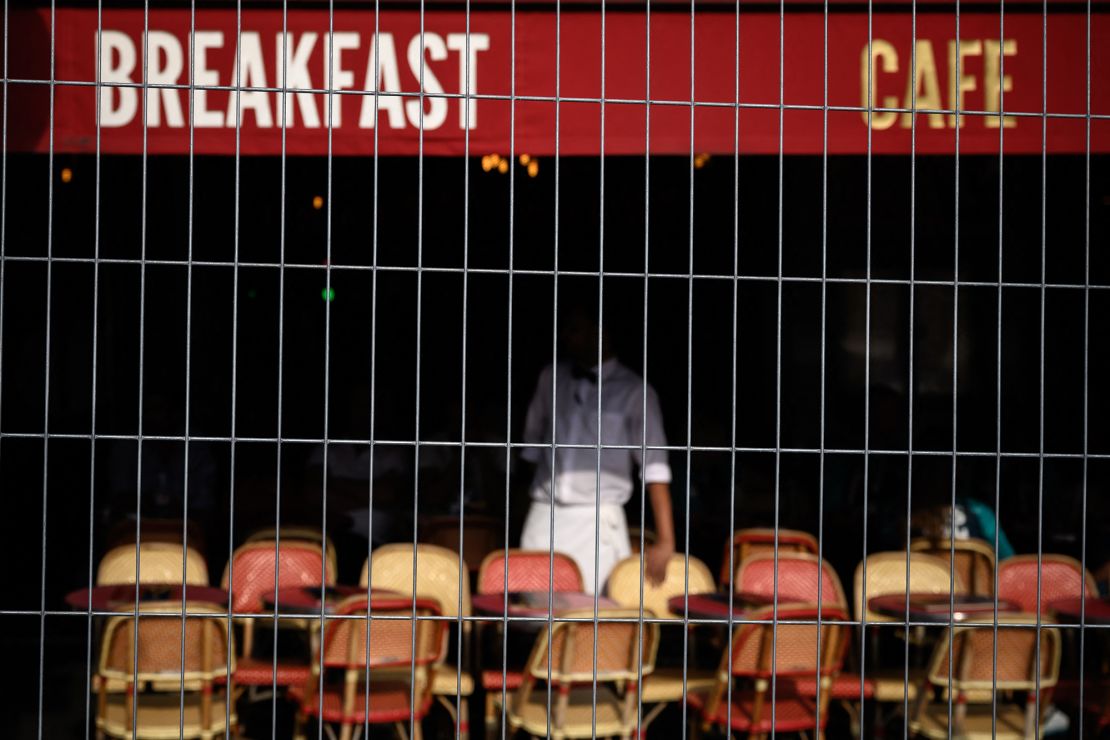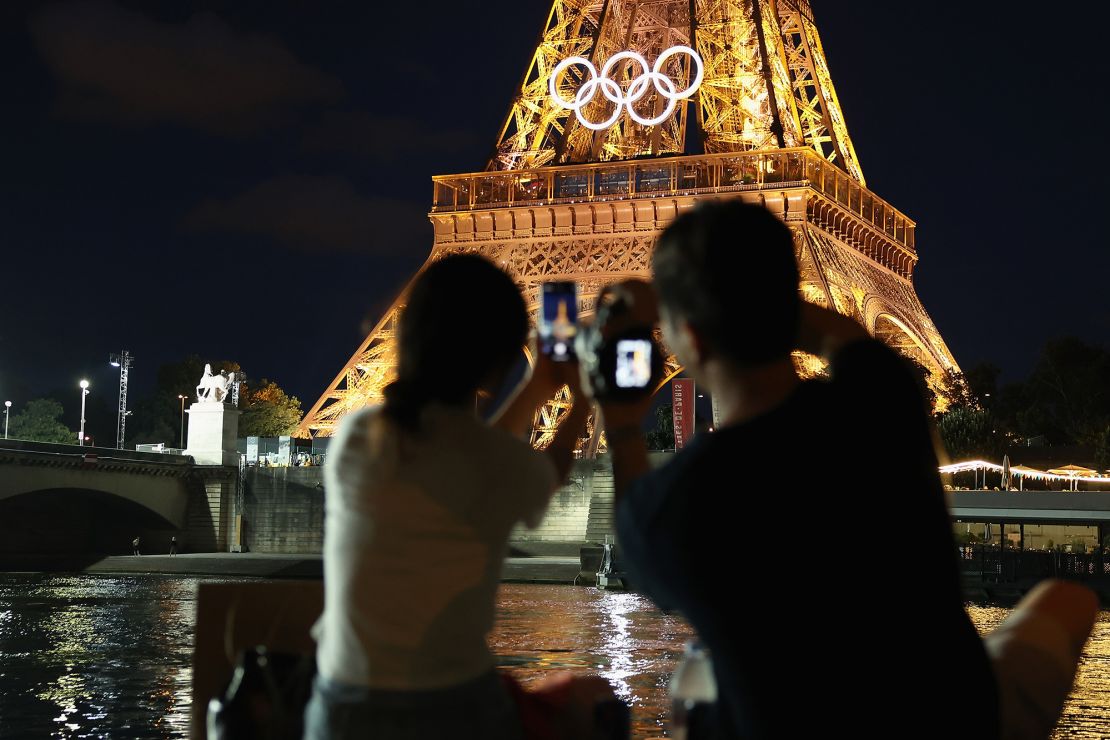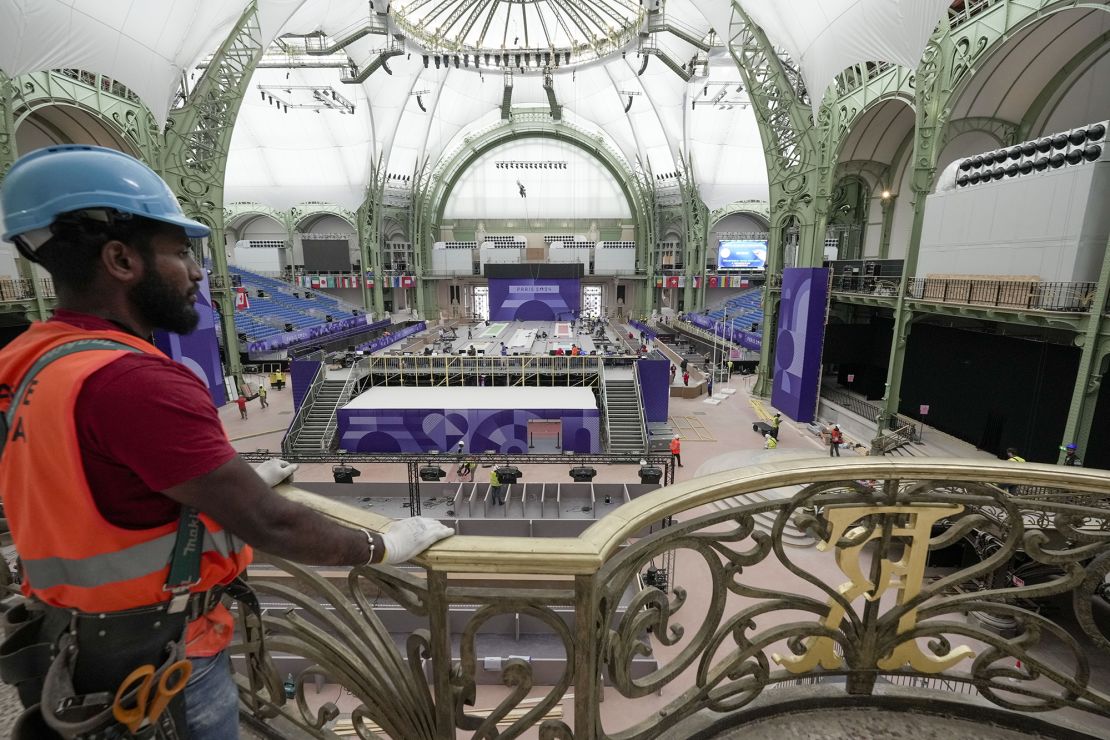The City of Lights will be in the spotlight for the next few weeks as Paris serves as center stage to incredible performances and achievements of the human body, mind and spirit.
However, hosting the Olympic and Paralympic Games has become an extraordinary feat in and of itself — and a financially untenable one at that.
The quadrennial summer and winter events come at a cost. And, especially in recent decades, the spectacle has been blemished by budget overruns, long-term debts, wasteful infrastructure, displacement and gentrification, political strife and environmental harm.
The International Olympic Committee hopes to right the ship, starting with the Paris Games: The nongovernmental sports organization is aiming to take a more frugal and greener approach than in years past.
“This will be the first Olympics, since Sydney, where the total costs are coming in under $10 billion,” said Victor Matheson, a College of the Holy Cross professor of economics who has researched the financial costs of the Olympics.
“That’s because the IOC was running out of cities willing to host this thing,” he added. “It’s become pretty clear to cities that — under the old regime — these were real financial debacles for the cities involved, and wildly expensive with little hope to make money back in the long run.”
Still, some economists and researchers argue that a truly sustainable Olympics will need to look a lot different than the Games we know today.
Forty years ago, the Olympics were also at a crossroads.
After the 1968 Mexico City Games and 1972 Munich games were marked by deadly violence and the 1976 Montreal Games experienced dramatic cost overruns, there were hardly any takers to serve as a host city for the 1984 games, said Andrew Zimbalist, Smith College sports economist who wrote about the economic tensions of the Olympics and the World Cup in his book, “Circus Maximus.”
Los Angeles, the lone city to bid on the 1984 games (after Tehran pulled out), was able to use its existing infrastructure and stadiums, lined up lucrative corporate sponsorships and broadcast rights, and built up the event into the marketing behemoth it is today.
The icing on the cake: The LA Organizing Committee ended up with a surplus of $215 million.
“Shown the alluring path to possible profits, cities and countries now lined up for the honor of hosting the games,” Zimbalist wrote in his book. “The competition to host the Games became almost as intense as the athletic competition itself.”
In jockeying for the Olympics, some cities spent upward of $100 million on the bidding process alone, he said. And once they did land those bids, the costs often soared well beyond what was initially estimated and budgeted.

Including Paris, five of the past six Olympics (summer and winter) had inflation-adjusted cost overruns of well more than 100%, according to an Oxford University study released in May 2024.
“All Games, without exception, have cost overrun,” researchers wrote. “For no other type of megaproject is this the case, not even the construction of nuclear power plants or the storage of nuclear waste.”
And that’s being conservative, the researchers noted, adding they did not include indirect capital costs such as improvements to roads, rail, airports, hotels, and other infrastructure not directly associated with the operations of the games.
By Zimbalist’s estimates (which include operating costs and direct and indirect infrastructure costs), the games themselves grew increasingly extravagant: Beijing spent more than $40 billion for the 2008 Summer Games, Sochi spent upward of $50 billion for the 2014 Winter Games and Rio’s costs approached $20 billion for the 2016 Summer Olympics, he wrote.
“One of the big issues, whether you’re looking at the question of surplus or deficit, or some other strictly financial question, is that if you really want to know how much money is spent, and how much money comes in, you simply have to include everything,” Zimbalist told CNN in an interview. “You can’t just include the 17 days of costs.”
And when revenue clocks in at a fraction of the cost — averaging about $6 billion to $8 billion since 2005 — the math started making less sense.
Also, Olympics accounting is highly fungible and easy to manipulate, he added. In addition to indirect costs not being included in the official budgets, some direct operating costs end up off the books as well.
In late 2019, before the Covid-19 pandemic would shock the global economy and postpone the 2020 Games, Japan’s National Audit Board found that the Tokyo Olympic organizers’ estimates of $12.6 billion did not include $17 billion of direct costs.
“You already have enough difficulty getting cities to bid at all to host the Games, and you come out and throw out a figure like $30 billion, and it’ll be assured that nobody will ever want to host the games again,” Zimbalist said.
Last year, the organizing committee for the 2022 Beijing games reported a surplus of $52 million on $2.24 billion of expenditures. However, a Business Insider investigation found that the overall costs were likely more than 10 times that amount.
Short- and long-term effects
What’s often touted alongside extravagant sports events such as this are the intangibles: The short- and long-term economic impacts of the preparation for, the activity during and the ripple effects in the years to come.

However, Zimbalist said, most of those costs are ultimately negated by near- and long-term economic losses and debt. For example, the time, labor and money spent on a large facility is likely interrupting daily commerce, taking up valuable real estate, pulling attention and labor away from needed infrastructure projects, and draining future resources via ongoing maintenance costs or debt service payments — including for “white elephant” facilities used infrequently or left for ruin.
The short- and long-term impacts also include invisible costs such as displacement of (typically lower-income) residents, gentrification and potential environmental harm, Zimbalist said.
“I think you can make an argument that it can make sense financially — not in the way that it will transform the city economically, like the claims often made of, ‘You’re putting your city on the world map,’ and ‘You’re going to get all this tourism and business and investment;’ those kinds of claims are outlandish and inaccurate,” Zimbalist told CNN. “The more straightforward and simple claims of, ‘Maybe we’ll break even’ or ‘Maybe we’ll have a small surplus,’ and ‘Maybe we’ll have a new facility that will be used by the community’ … If the planning is done right, and the city is already very mature and developed, it’s possible that can happen.”
What it also comes down to is the “net effect,” said Amanda Phalin, an associate professor who specializes in international business and economics at the University of Florida’s Warrington College of Business.

“Although sporting events, including the Olympics, attract a lot of people, there are also a lot of people who are going to forego visiting there because [of the event],” she told CNN.
Because of that displacement, the economic impact of sporting events tourism typically ends up being a wash, she said.
In terms of the “city on the map,” or long-term tourism benefits, sometimes those have required significant additional investments after the Olympic flame is extinguished. Phalin noted Lake Placid, New York, as a prime example: Since hosting the Winter Olympics in 1980, Lake Placid has funneled hundreds of millions of dollars into its Olympic facilities as a tourist and business destination.
“I came up with this silly thing, it might be wrong because I’m not a physicist, but I’m going to call it Newton’s First Law of Investment, which is a project drawing funds tends to stay funded unless acted upon by an unbalanced force,” Phalin said, “In other words, once you’ve spent five or 10 or more years forking out big bucks to a huge initiative that has a lot of political or special interest support, it’s really hard to turn off the funding spigot.”
Lake Placid’s Olympic Regional Development Authority told CNN that the Olympic venues in that region continue to attract tourism, draw major championship events (including cycling and snow sports world cups), develop future athletes, and account for an annual economic impact of $341.8 million, according to a recent Tourism Economics study.
The IOC and host communities hope to make the event more economically, environmentally and socially sustainable.
For the 2024 Paris Games, which are the first aligned with the IOC’s Agenda 2020 roadmap of 40 recommendations to ensure the event’s future viability, organizers have announced a slew of initiatives aimed at reducing the impact of the games.
This includes building only one permanent sports facility (a low-carbon, bio-based aquatics center designed for future use by the public and French Olympians alike) and relying instead on existing or temporary structures that show off the city’s famous monuments while taking the “sport out of the stadiums.”

Paris organizers also touted efforts to minimize the carbon footprint of the games, relying on low-impact or recycled goods whenever possible — such as furniture made with shuttlecocks — and identifying second lives for the temporary structures and equipment utilized for the games.
Additionally, the Paris Olympic Village will be converted into offices and housing in a historically impoverished neighborhood. (However, the revitalization efforts have raised concerns about displacing thousands of people and negative gentrification impacts.)
Looking ahead to Los Angeles in 2028, similarly veined efforts are underway for the “No Build” Olympics. The upcoming LA games not only will rely on existing infrastructure, but some events will be held 1,300 miles away in Oklahoma, which has the facilities for softball and canoe slalom.
Still, economists say, it may take more drastic moves in the future for the Olympics to be truly sustainable and economically sound.
To ensure true long-term viability of the Olympics, Matheson, Zimbalist and Phalin said it may come down to designating a single city or rotating through a couple of cities to serve as permanent hosts for the games.
“I love the Olympics, and I love sporting events, but I just really do not think that the way the Olympics works now is a viable business model,” Phalin said. “It just doesn’t make economic sense to, every four years, build out this huge web of sports-related infrastructure.”















